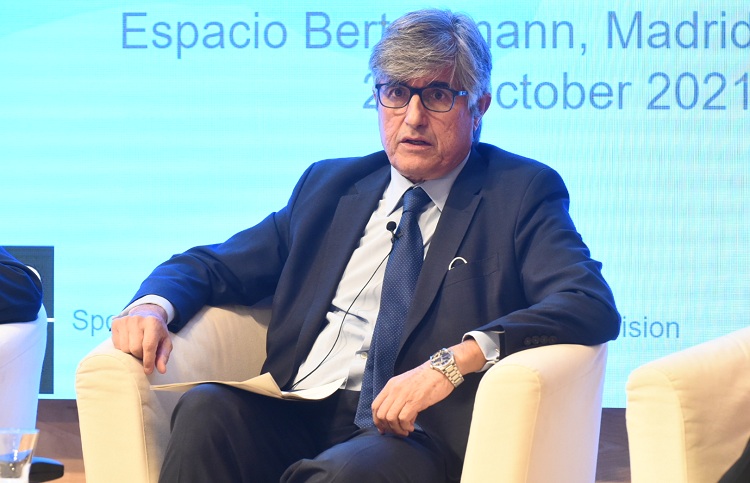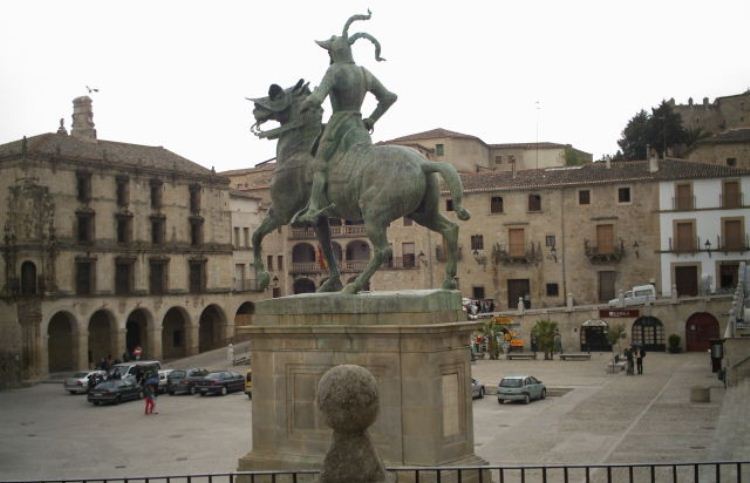Eduardo González
The director general of Foreign and Security Policy of the Ministry of Foreign Affairs, Federico Torres, warned yesterday, in view of the next NATO Summit to be hosted by Madrid in 2022, that the Alliance should look beyond its “current geographical limits” because “the security of our Euro-Atlantic democracies is also at stake in neighboring spaces.”
“We want to be more than just excellent hosts, as we usually are,” Torres declared during his participation in the event The Madrid Summit and the future of NATO, organized by Elcano Royal Institute in Madrid with the sponsorship of NATO’s Public Diplomacy Division. Spain’s objective, “shared with the organization and the member states,” is to contribute to “strengthening the political commitment in the Alliance along the lines of the NATO 2030 initiative, to make the organization more cohesive, to reinforce the concepts of deterrence, defense and resilience and to manage our technological advantage,” added Torres, who took office on October 1.
Another objective, he continued, is “to ensure that NATO’s new strategic concept, which we are proud to hope will be called the Madrid Strategic Concept, is very much in tune with the still very theoretical concept of European strategic autonomy,” a “concept under construction, broad and therefore ambiguous, in which we are not only talking about the Europe of defense, but also about value chains, respecting the EU’s philosophy of openness to the world.”
On the other hand, Torres warned, NATO cannot “maintain a concept of security limited only to the organization’s member states,” because “the security of our Euro-Atlantic democracies is also at stake in neighboring areas”. For this reason, he explained, “Spain’s great interest is that two important security challenges be taken into account: the situation in the Sahel”, where there are “third actors, who probably do not share our values, interested in the region”; and the Gulf of Guinea, a region facing “a new maritime security challenge” such as piracy. Spain’s “message”, he added, is that “the geographical limits of NATO’s action, an alliance of democracies, must be overcome in the face of hybrid threats, such as disinformation, the manipulation of electoral processes or the protection of personal data, which not only affect the Euro-Atlantic area, but also affect Africans, Asians and Latin Americans”.
In a very similar vein, Luis Simón, Director of the Brussels Office and Senior Analyst at the Elcano Royal Institute, warned that “a key challenge for NATO will be to reconcile its predominantly Euro-Atlantic and military character with a reality in which non-Euro-Atlantic and non-military dynamics have an increasingly important impact”. For her part, Baiba Braže, NATO Under-Secretary General for Public Diplomacy, stated that, in the face of the rise of Russia and China and new threats, “the international response is not enough”. Therefore, “at the Madrid Summit we will try to collectively capture all the challenges and threats and make sure that the Alliance is fit for the future”.
The event – attended by the Ambassador of Lithuania, Lyra Puišytė-Bostroem; the Ambassador of Chile, Roberto Ampuero; and representatives of the Embassies of Germany, Montenegro, United Kingdom, Italy, Denmark, North Macedonia, Sweden, Croatia, Tunisia, Estonia, Hungary and Vietnam-, was presented by the president of the Elcano Royal Institute, José Juan Ruiz, who highlighted the “special historical relevance” of the Madrid Summit, in which “the approval of the new strategic concept, NATO’s most important political document, is expected”. Besides, he added, “Spain has a great opportunity to mark the strength of its Atlantic and transatlantic link”.







